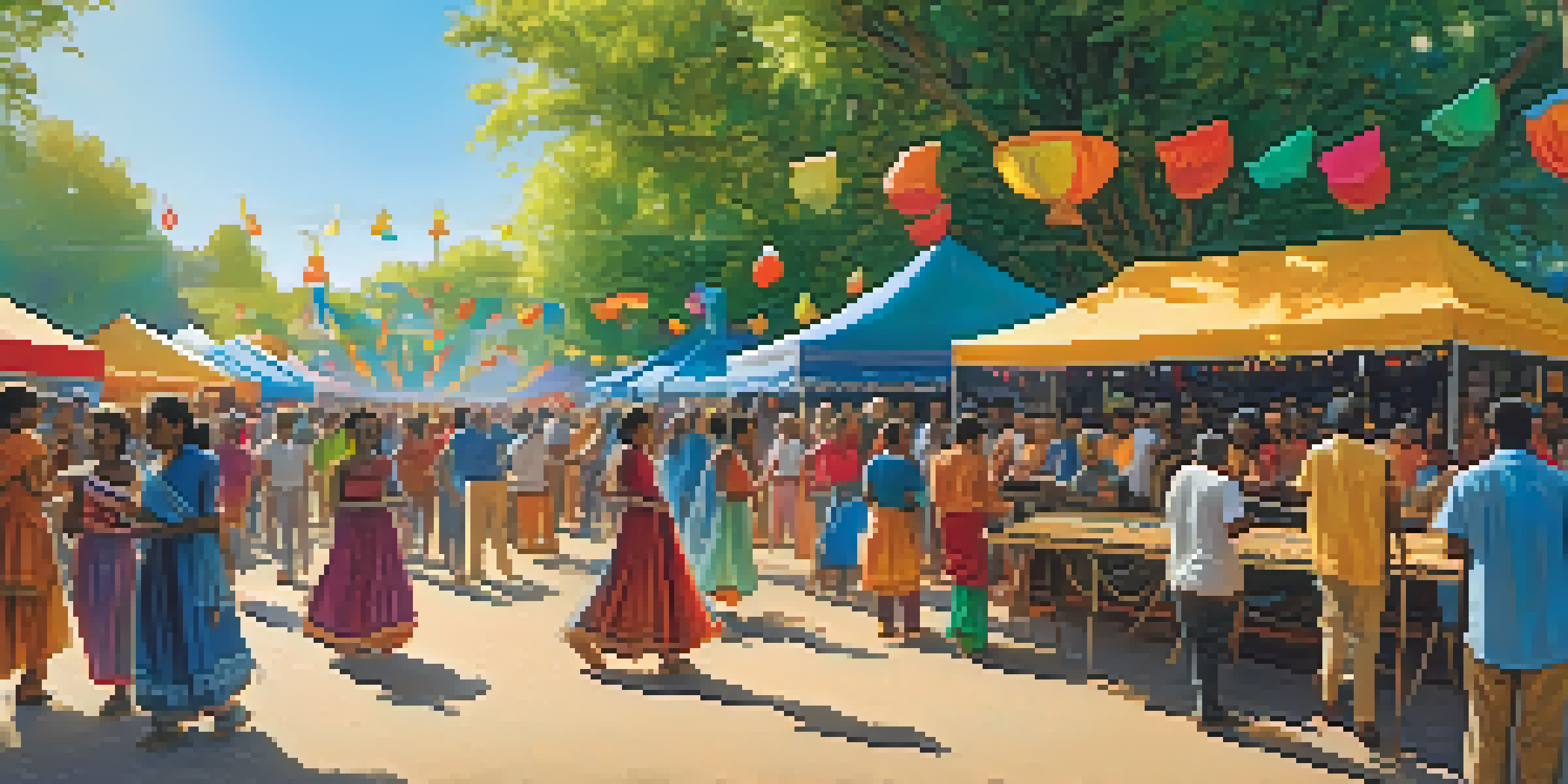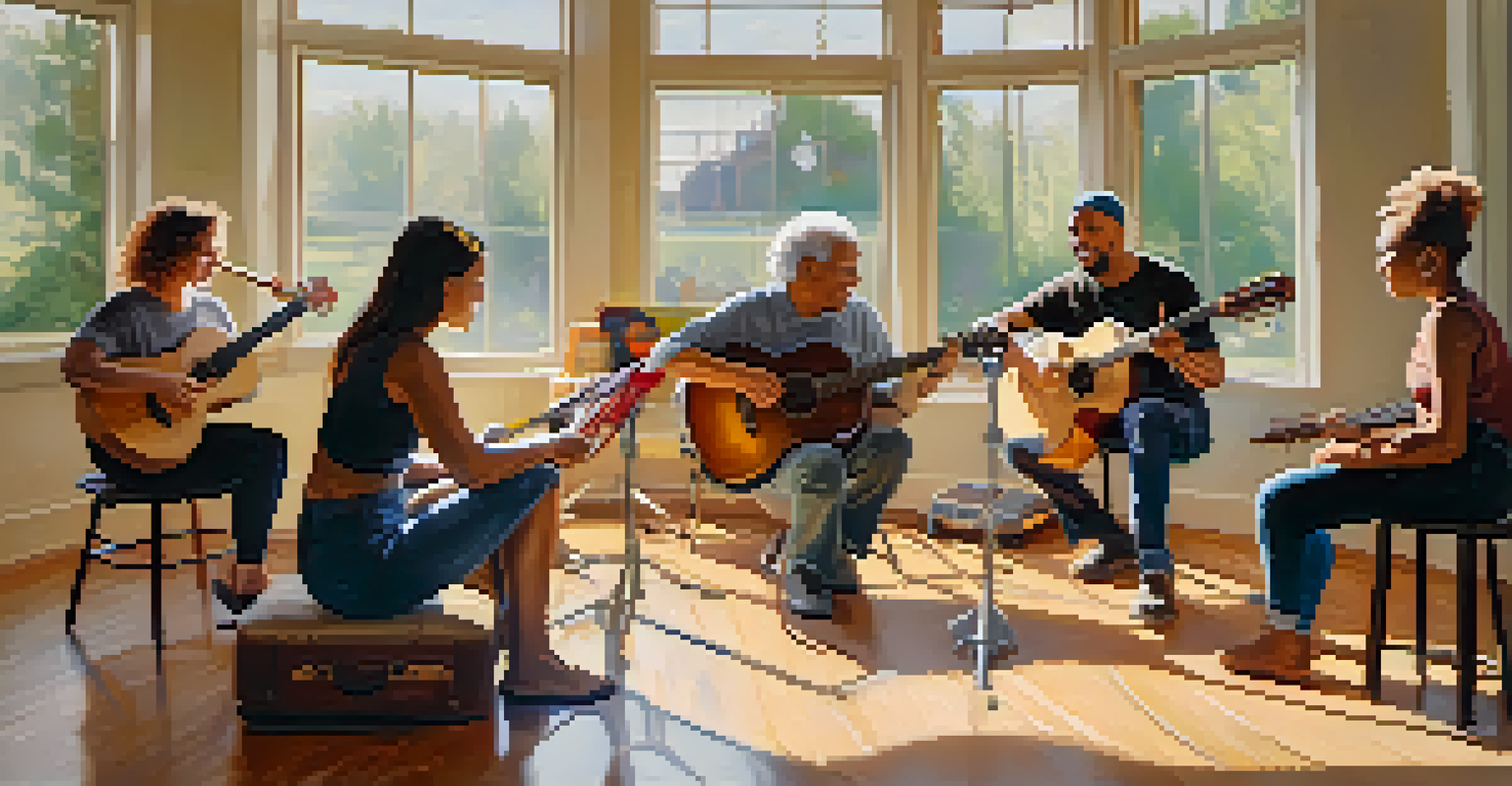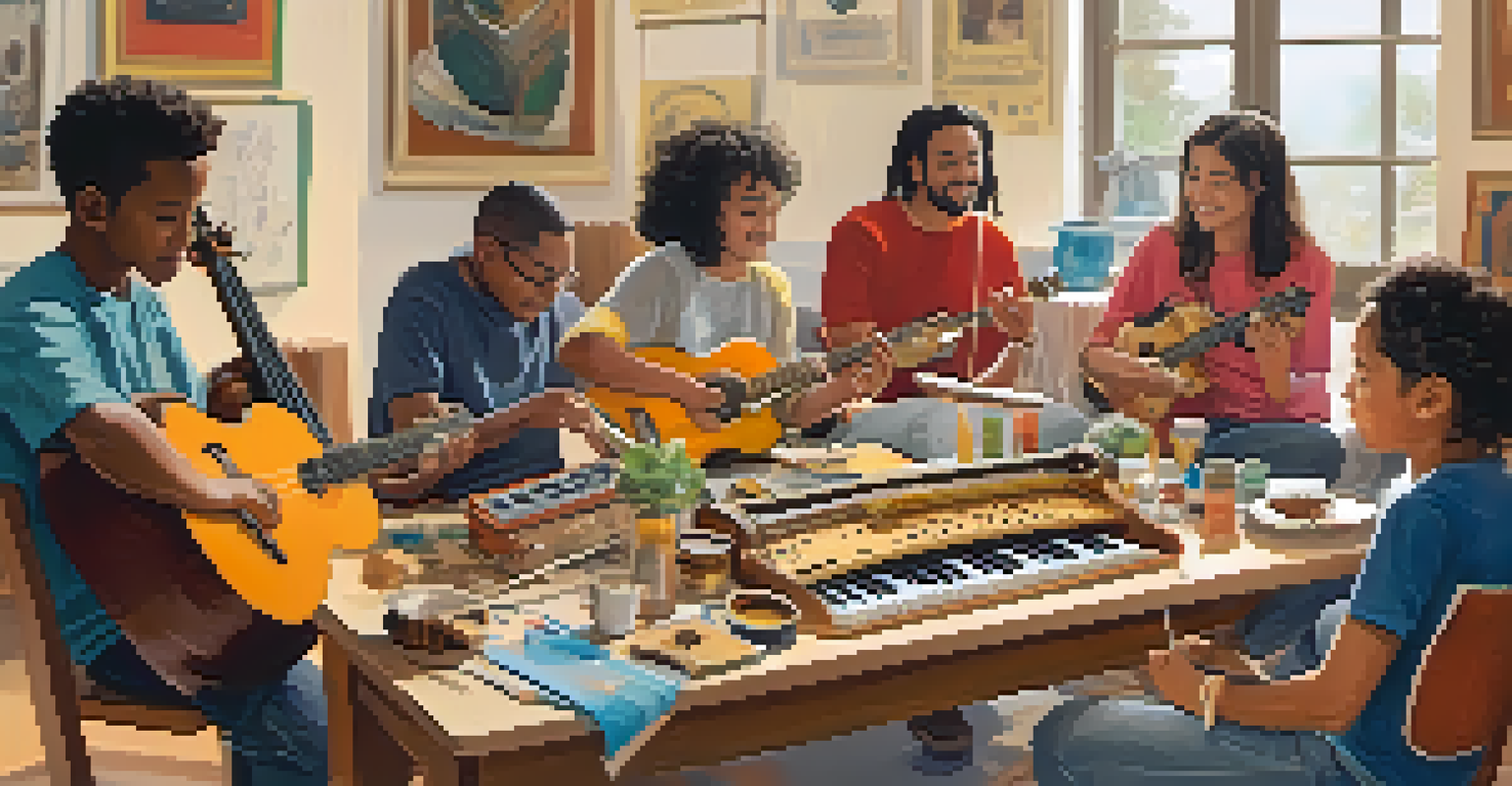The Role of Music in Strengthening Cultural Community Bonds

Music as a Universal Language of Connection
Music transcends barriers, uniting people from diverse backgrounds. It's a universal language that can express emotions where words often fail. When communities come together to share songs, they create a bond that fosters understanding and empathy.
Music is the universal language of mankind.
For instance, think about a local festival where different cultural groups perform their traditional music. The shared experience not only entertains but also educates attendees about each other's heritage, creating a sense of camaraderie.
This connection through music can lead to stronger relationships within communities, as people find common ground and celebrate their differences simultaneously.
Preserving Cultural Heritage Through Music
Music plays a vital role in preserving cultural heritage and history. Traditional songs often carry stories and values passed down through generations, acting as a living archive of a community's identity.

Consider folk music, which often tells tales of a community's struggles and triumphs. By engaging with this music, younger generations can connect with their roots, ensuring that their cultural narratives continue to thrive.
Music Connects Diverse Communities
Music transcends cultural barriers, fostering understanding and empathy among individuals from different backgrounds.
Moreover, community events that highlight these traditional forms of music help reinforce a shared identity, making individuals feel more connected to their heritage and each other.
Creating Spaces for Community Engagement
Music festivals, concerts, and workshops serve as communal spaces for engagement. These events provide opportunities for individuals to gather, share experiences, and collaborate creatively.
Where words fail, music speaks.
Imagine a community potluck where everyone brings a dish and shares a song from their culture. This not only promotes inclusivity but also encourages dialogue and interaction among participants.
As people engage in these shared musical experiences, they often form lasting friendships and networks, strengthening the sense of belonging within the community.
Empowerment Through Collaborative Music Making
Collaborative music-making fosters teamwork and empowerment within communities. When people come together to create music, they learn to communicate effectively and appreciate each other's contributions.
For example, community choirs or bands often bring together individuals with varying skill levels, allowing them to learn from one another. This process can be incredibly empowering, as participants discover their unique talents and voices.
Cultural Heritage Preserved in Song
Traditional music serves as a living archive, preserving stories and values that connect younger generations to their roots.
As they create music together, they also build trust and support networks, reinforcing the idea that every voice matters in the larger community.
Music as a Tool for Social Change
Throughout history, music has played a significant role in advocating for social change. Many genres, from folk to hip-hop, have been used to express dissent and inspire movements.
Take protest songs, for instance; they highlight social injustices and rally communities around common causes. When people sing together in support of a movement, it creates a powerful sense of solidarity.
This collective action through music not only raises awareness but also strengthens community bonds as individuals unite for a shared purpose.
The Therapeutic Benefits of Music in Communities
Music has proven therapeutic benefits that can enhance mental well-being in communities. Participating in music-making can reduce stress, anxiety, and feelings of isolation.
For example, community music therapy programs often allow participants to express their emotions through song, fostering a supportive environment for healing and connection.
Music Fosters Community Engagement
Collaborative music-making creates inclusive spaces that promote dialogue, creativity, and lasting friendships within communities.
As individuals share their experiences through music, they often find comfort in knowing they are not alone, which can significantly strengthen community ties.
Fostering Cross-Cultural Understanding Through Music
Music can serve as a bridge between cultures, promoting understanding and appreciation. By exploring different musical traditions, communities can learn about one another's histories and values.
Consider cultural exchange programs where musicians share their music and techniques. These interactions not only enrich the participants’ musical repertoire but also foster respect for diversity.

As communities embrace cross-cultural musical experiences, they cultivate a more inclusive environment, leading to strengthened bonds across different cultural groups.
The Future of Music in Community Building
Looking ahead, the role of music in community building is more crucial than ever. With increasing globalization and digital connectivity, communities can share their music far and wide.
Online platforms allow for virtual collaborations, enabling people from different backgrounds to come together and create. This evolution expands the possibilities for cultural exchange and collective identity.
As we embrace these changes, it's essential to remember that music will continue to be a vital tool in strengthening the bonds that unite us, fostering both local and global communities.